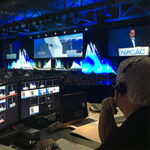As of press time, both houses of Congress had passed legislation that if enacted would cut spending on non-military government conferences to 80 percent of its 2010 level, cap spending on individual conferences at $500,000, and impose strict reporting requirements on federal agencies’ conference expenditures. Similarly, in May, the Office of Management and Budget issued “guidance” that among other things requires federal agencies to reduce travel spending by 30 percent and limits conference spending to $500,000 per event unless the agency’s secretary approves a waiver.
The pressure-cooker scrutiny is taking its toll. In late April, the Global Business Travel Association postponed its 2012 National Travel Forum, scheduled to meet in Phoenix this month, after GSA withdrew its support for the event. There have also been reports of government meetings being canceled or relocated to less glamorous destinations in the wake of the controversy.
At issue is GSA’s 2010 Western Regions Conference (WRC), a training event for 300 employees that was held at the M Resort Spa Casino in Henderson, Nev., on Oct. 25–29, and that racked up a budget of more than $822,751 — including $130,000 for what a scathing GSA Office of Inspector General report called eight “scouting and off-site pre-conference meetings.” The report concluded: “The excessive pre-conference planning, catering, and other costs, as well as the luxury accommodations and overall approach, show that GSA’s planning and expenditures for the 2010 WRC were incompatible with its obligation to be a responsible steward of the public’s money.”
No one in the meetings industry disagrees. “The federal government maintains strict rules regarding spending and ethics when it comes to travel,” the Society of Government Meeting Professionals said in a statement, “and, as in this case, when those rules are broken those responsible should be held accountable.”
But the industry is pushing back on Congress’ response to the scandal. PCMA, ASAE, MPI, IAEE, CIC, and the U.S. Travel Association have joined together to express concern that while “the stated intent of the language would be to prevent wasteful spending on government- sponsored conferences, the actual language would prevent many federal employees from attending and participating in private conferences.” The groups have created an “industry-wide petition” that calls the proposed legislation “an extreme overreaction.”
Experienced government meeting professionals agree. The GSA conference was “a completely blatant thumbing your nose at the system,” said Russell W. Kraus, CMP, president of Colorado-based Meetings in General. “There are more than adequate rules in place [to prevent this type of abuse]; unfortunately, sometimes they’re ignored.”
In a letter to his U.S. senators, his House representative, and President Obama, Kraus took the rates from a contract he negotiated for an upcoming government meeting in Richmond, Va., and applied them to a hypothetical three-day, 300-attendee conference. Without taking into account expenses such as transportation from the airport to the hotel, name badges, and other administrative items, he quickly arrived at a budget of $420,000. (See “Line Items,” below) “The only way you can make your point,” Kraus said, “is if you can illustrate for them what $500,000 buys you.”
Echoing Kraus, Elizabeth Perrin said, “If you read the [inspector general’s] report, there were several opportunities where the event planners … were on record saying these were not permissible expenses, and yet they continued to go on.” Perrin, director of consulting services for Courtesy Associates, specializing in helping vendors work with GSA, added: “It was a conglomeration of things that should not have happened.”
Part of the solution, Perrin said, must come from the industry, with third parties, hotels, and other vendors operating as transparently as possible, and in full accordance with government regulations – even when government employees aren’t. But “for the record,” she said, “the folks that handle the procurement processes that I have had the opportunity to deal with are some of the hardest-working, most ethical people within the government I have ever had the opportunity to work with.”
Line Items
Russell Kraus, CMP, crunched the numbers for a hypothetical three-day, 300-attendee government meeting in Richmond, Va., where the federal per-diem rates are $112 for lodging and $66 for meals and incidental expenses (M&IE), and estimated round-trip airfare is $446.44:
Lodging $134,000
M&IE $88,100
Airfare $133,932
Facility $0
Audiovisual $30,000
Basic F&B $34,119
TOTAL $420,551



